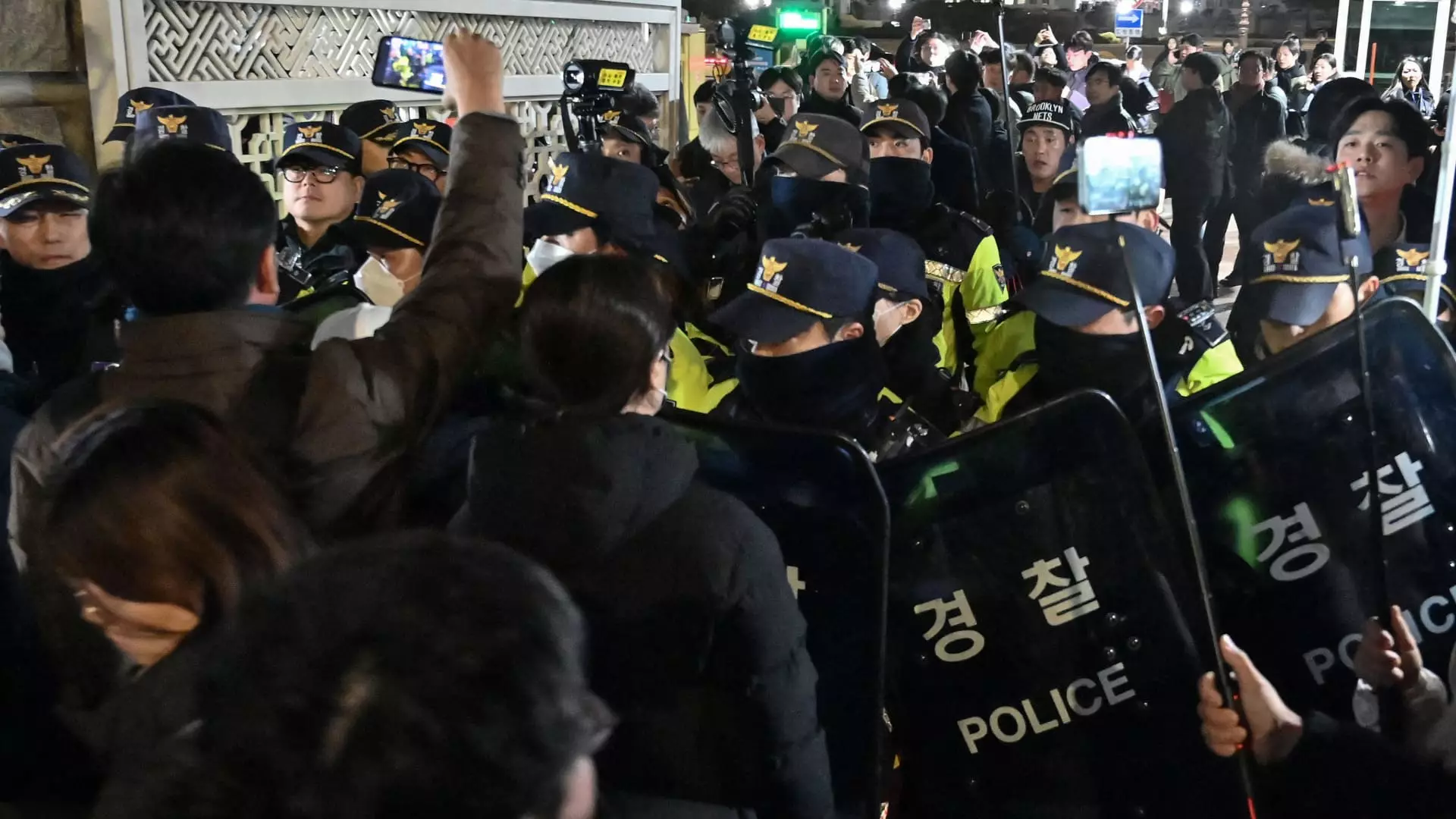On a day marked by uncertainty and apprehension, South Korean equities experienced a significant downturn in U.S. trading on Tuesday. This unsettling trend was primarily instigated by President Yoon Suk Yeol’s unexpected declaration of martial law, invoking emergency powers that have sent ripples of fear throughout markets. The broader implications of such a move on the 13th largest economy in the world raise serious concerns for both local and international investors.
The iShares MSCI South Korea ETF, which serves as a barometer for more than 90 significant Korean corporations, plummeted as much as 7%, reaching its lowest point in a year. Although some losses were mitigated after the swift action of the South Korean National Assembly—who convened in an emergency session to overturn the martial law—this brief respite of about 2.4% does little to dispel the overall atmosphere of instability. Major stocks, including Korea Electric Power and Coupang, suffered notable declines of 5% and 6%, respectively, illustrating the far-reaching effects of the political upheaval.
President Yoon’s administration has faced intense scrutiny, particularly following his allegations that opposition parties are aligning themselves with North Korea. Such rhetoric not only raises tensions within the political landscape but also poses a direct threat to democratic principles. The martial law decree prohibits any political engagement deemed to provoke social disorder, casting a shadow of anxiety over public discourse and citizen freedom. Historically, this marks the first martial law in South Korea since 1980, signaling a significant regression in governance.
Market Reactions and Government Response
In light of the troubling developments, the Korea Exchange promptly announced an emergency meeting to formulate strategies in response to the crisis. Local media outlets reported an impending decision on whether the stock market would reopen as usual, highlighting the urgent need for decisive action to stabilize investor confidence. The immediate response has also affected currency traders; the U.S. dollar surged by 1.9% against the South Korean won, further demonstrating the market’s reaction to the uncertainty surrounding the situation.
The repercussions of President Yoon’s martial law declaration extend beyond stock market fluctuations; they embody a profound existential dilemma for South Korea’s democracy. With a swift backlash from lawmakers, there are questions about leadership legitimacy and the potential for long-term damage to the nation’s economic fabric. Investors continue to watch closely, as the unfolding scenario highlights the vulnerabilities inherent in governance structures faced with crises. The interplay between political stability and economic prosperity remains critically intertwined, serving as a poignant reminder of the weight that governance carries in shaping the economy’s future.

Leave a Reply